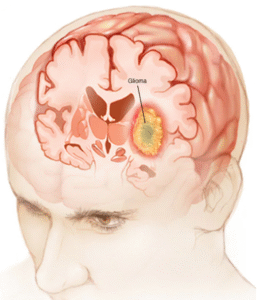Overview
Adrenal cancer, also known as adrenocortical carcinoma, is a rare but aggressive form of cancer that originates in the adrenal glands—small organs located on top of each kidney. These glands are responsible for producing hormones that regulate vital bodily functions such as metabolism, blood pressure, and the stress response. Because of its rapid growth and tendency to spread, early detection and treatment are critical.
What is Adrenal Cancer?
Adrenal cancer is a malignant tumor that forms in the outer layer (cortex) of the adrenal gland. It can produce excess hormones, leading to noticeable symptoms, or it may be non-functional and remain silent until it grows large or spreads. Adrenal cancers differ from benign adrenal tumors (adenomas) in that they tend to grow quickly and can metastasize to other parts of the body.
Symptoms
Symptoms of adrenal cancer vary depending on whether the tumor is hormone-secreting or non-secreting:
Hormone-Secreting Tumor Symptoms:
- Excess cortisol: Weight gain, muscle weakness, high blood pressure, diabetes (Cushing’s syndrome)
- Excess androgens (in women): Facial hair, deep voice, irregular periods
- Excess estrogens (in men): Breast enlargement, erectile dysfunction
- Excess aldosterone: High blood pressure, low potassium levels, muscle cramps
General Symptoms:
- Abdominal pain or discomfort
- Unexplained weight loss
- A palpable mass in the abdomen
- Fatigue
- Loss of appetite
Causes
The exact cause of adrenal cancer is unknown, but genetic and environmental factors may play a role. Some cases occur sporadically, while others are associated with hereditary syndromes.
Risk Factors
Several factors increase the risk of developing adrenal cancer:
- Genetic syndromes, such as:
- Li-Fraumeni syndrome
- Beckwith-Wiedemann syndrome
- Multiple endocrine neoplasia type 1 (MEN1)
- Family history of adrenal tumors or certain cancers
- Age: Most common in children under 5 and adults in their 40s to 50s
- Smoking (possibly linked, though not definitively proven)
Complications
If untreated or diagnosed late, adrenal cancer can lead to:
- Spread (metastasis) to the liver, lungs, bones, or lymph nodes
- Severe hormone imbalances
- Life-threatening complications due to uncontrolled high blood pressure, diabetes, or hormonal excess
- Side effects from treatments like surgery, chemotherapy, or radiation
Prevention
There are no guaranteed ways to prevent adrenal cancer, especially sporadic cases. However, the following may help:
- Genetic testing and counseling for individuals with family history of related syndromes
- Regular health check-ups for those with hereditary cancer risk
- Monitoring benign adrenal tumors with imaging, especially if large or growing
Treatment Options Korea
Treatment depends on the stage of the cancer and whether it has spread. Common options include:
1. Surgery
- Primary treatment: Removal of the adrenal gland (adrenalectomy)
- Often used for localized tumors
2. Radiation Therapy
- May be used after surgery to reduce recurrence risk
- Also used for pain relief in metastatic disease
3. Chemotherapy
- Used for advanced or metastatic adrenal cancer
- Mitotane: A drug specifically used to suppress adrenal function
- Other chemotherapy combinations: Etoposide, Doxorubicin, Cisplatin
4. Hormone Therapy
- To counteract hormone overproduction
- May involve medications that block hormone effects or synthesis
5. Targeted Therapy and Clinical Trials
- New drugs being tested in clinical trials may offer additional options
- Targeted therapies aim to attack specific molecules involved in cancer growth













